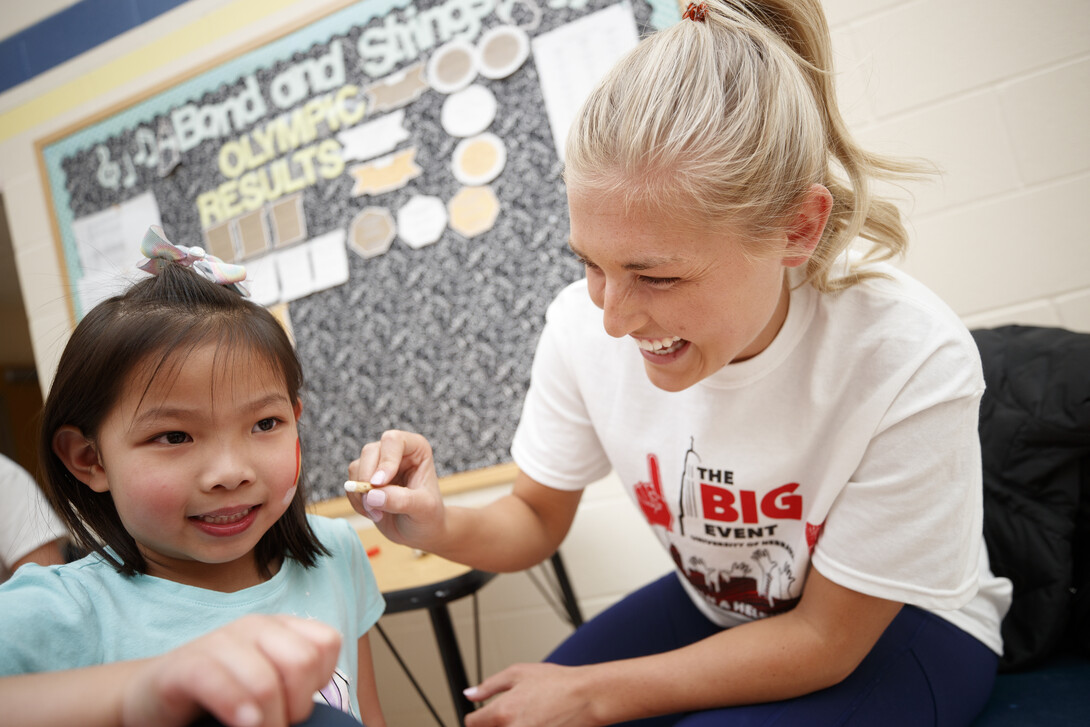
In commemoration of the University of Nebraska-Lincoln’s 150th year, the Center for Civic Engagement has challenged the university community to grow its helping handprint.
The Husker Civic Challenge is encouraging students, staff, faculty, alumni and friends of the university to record more than 1.5 million service hours during 2019.
“We want to be able to capture and record the impact of giving back to the state of Nebraska and beyond,” Linda Major, director of the Center for Civic Engagement, said.
The challenge began Jan. 1 and formally kicked off with the Husker Civic Challenge Service Fair Jan. 16, where students learned about volunteer opportunities with local nonprofit organizations.
Major said there will also be monthly events in which students can participate and record service hours, beginning with the MLK Reading Challenge Jan. 21 and a Valentines for Troops event in February. Additional events will be announced as they are finalized.
The university is using GivePulse, a civic service tracking website, to record service hours. Any person who wants to log hours toward the challenge can register with the site at unl.givepulse.com.
The website also lists volunteer opportunities from more than 400 local organizations, service events and service learning classes, tracking the hours given in real time. Users can log hours and get information via a GivePulse app, as well. Linda Moody, assistant director of civic engagement, has led the integration of GivePulse at the university and in the Lincoln community.
Major thinks the goal is reachable. Hours from service learning coursework and some student events, like the Big Event, have been estimated at around 900,000 per year.
“And that’s not accounting for service done by groups such as student organizations like Dance Marathon, and sororities and fraternities, and many others,” she said. “It will be interesting to see at the end how much service learning is happening on campus.”

Major encouraged the university community to broaden perceptions of service.
“Historically, we think about community service as working at a food bank or helping with the neighborhood cleanup,” Major said. “I think a lot of people serve in various capacities, on advisory boards or unpaid elected positions, for example, without thinking of it as service.”
Logging hours in GivePulse to show impact and volunteering will also help Nebraska reach a goal laid out by Chancellor Ronnie Green during the State of University address Jan. 15. Green said he would like to see Nebraska gain the Carnegie Classification for Community Engagement, which recognizes institutions’ commitment to community engagement.
“If we seek that elective classification, GivePulse will serve a role in the application process and will have already recorded our impact,” Major said.







